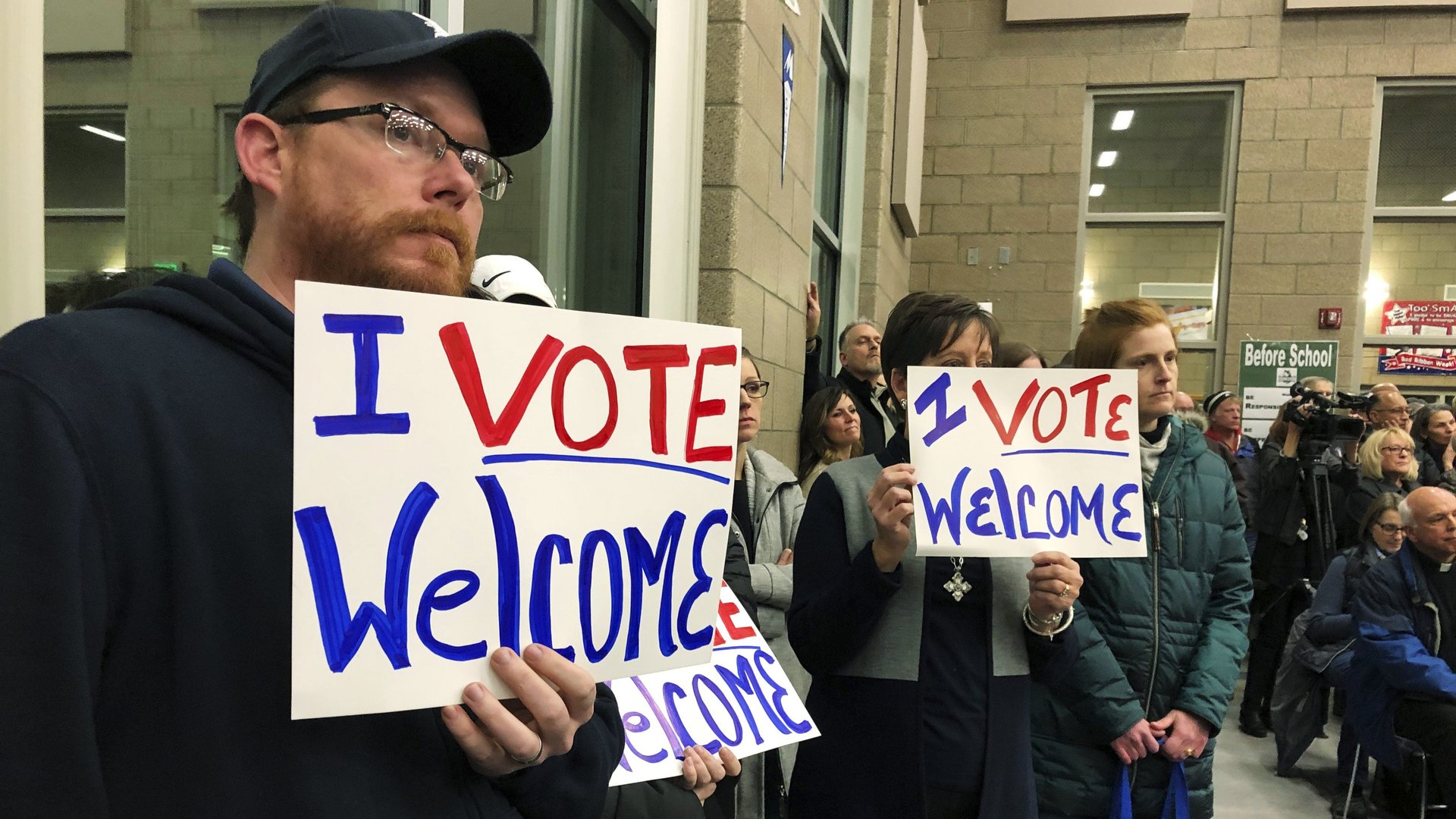15 Republican governors are asking Trump for more refugees
Shrinking the number of refugees in the United States is a priority for the Donald Trump administration, which has already reduced the quota of refugees allowed in the US, made it harder for them to apply at the southern border, and signed executive orders to bar refugees from certain countries.


Shrinking the number of refugees in the United States is a priority for the Donald Trump administration, which has already reduced the quota of refugees allowed in the US, made it harder for them to apply at the southern border, and signed executive orders to bar refugees from certain countries.
It seems to be less of a priority for individual states, including Republican ones: Of the 26 US states with Republican governors, 15 have asked Trump for more refugees.
According to an executive order signed Sept. 26, 2019, states have until Jan. 21, 2020 to provide written consent for resettlement programs to be in effect on their territory. As of Dec. 28, according to the State Department, 33 states had requested refugee-resettlement programs, 15 of them run by Republican governors:
- Arizona (Doug Ducey)
- Arkansas (Asa Hutchinson)
- Indiana (Eric Holcomb)
- Iowa (governor: Kim Reynolds)
- Massachusetts (Charlie Baker)
- Nebraska (Pete Ricketts)
- New Hampshire (Chris Sununu)
- North Dakota (Doug Burgum)
- Ohio (Mike DeWine)
- Oklahoma (Kevin Stitt)
- South Dakota (Kristi Noem)
- Tennessee (Bill Lee)
- Utah (Gary Herbert)
- Vermont (Phil Scott)
- West Virginia (Jim Justice)
While some governors haven’t yet decided, like Maryland’s Larry Hogan, others have expressly outlined a desire for more refugees. A consent letter from Utah governor Gary Herbert (pdf) pointed out the role of refugees in Utah’s society and in its history. “Our state was founded by religious refugees fleeing persecution in the Eastern United States,” Herbert writes. “Those experiences and hardships of our pioneer ancestors 170 years ago are still fresh in the minds of many Utahns. As a result, we empathize deeply with individuals and groups who have been forced from their homes and we love giving them a new home and a new life.”
In states struggling with low population growth and many available jobs, refugees can be a boon.
Significantly, no governor—Republican or otherwise—has explicitly asked not to resettle refugees in their state. While the executive order was designed as an opportunity for conservative states to cosign the Trump administration’s anti-refugee policies, so far it has resulted in the opposite.